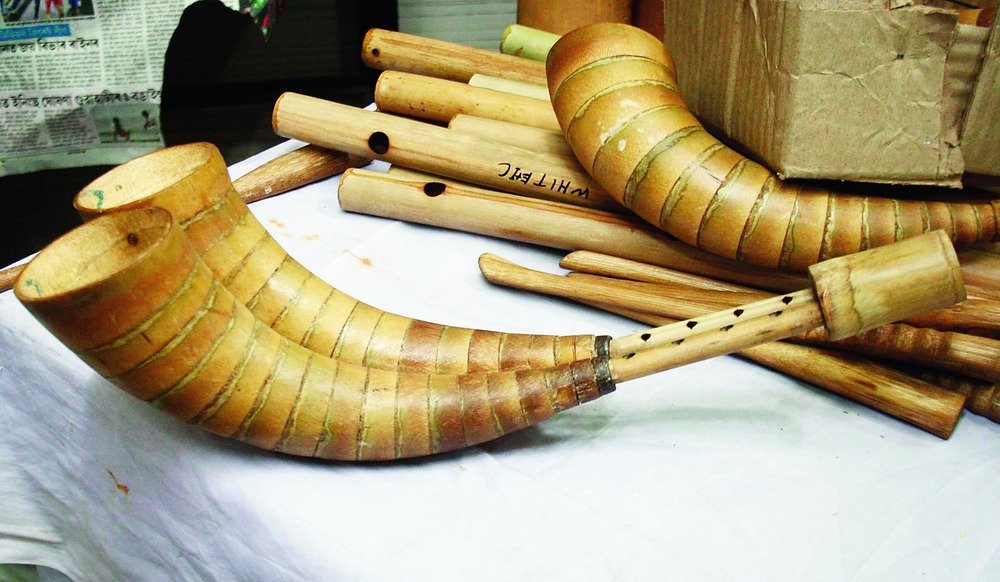
Guwahati, March 28: The traditional pepa made from buffalo horn is getting a new replacement in Assam. Bamboo and wood are increasingly taking the place of buffalo horns.
With Rongali Bihu approaching, some artisans in rural Assam have started making pepas from bamboo. They will be available in the pre-Bihu markets, including those in Guwahati.
Ananda Gogoi and his son, Pranab, from Nitaipukhuri in Upper Assam's Sivasagar district, are artisans who have been making pepas from bamboo since 2003. "Every year we sell 50 to 60 bamboo-made pepas. We sell them at Rs 1,200 to Rs 1,400 a piece," Pranab told The Telegraph.
"The cost of a buffalo horn pepa goes up to Rs 3,000. Besides, not many people rear buffaloes these days. That is why we decided to use bamboo to make pepas. A bamboo pepa will last up to 40 years. We take all measures to make them insect-resistant and durable," Pranab said. The father-son duo make many products from bamboo, including dhol, khol and dotara.
" Mokal bamboo above five years is suitable for making pepa. We can make up to six pepas from one bamboo tree. It takes a day at an average to make one pepa," Pranab said.
Pepa expert Prashanna Gogoi, who has played the instrument in innumerable Bihu numbers, has also used wood to make pepas. "Buffalo horn makes the resonator part of pepa, called xinga or thula. It enhances the sound. But the sound is produced by the rip which is made of nol, a kind of grass. The sound is manipulated by the rip pipe, which is made of bamboo," Gogoi said.
"I have made wooden pepas. Its sound is similar to the one made of buffalo horn. Sometimes, I use them as a replacement. But I do not support them being used in competitions. Buffalo horn pepa carries cultural and traditional values. If I was a judge in a Bihu competition, I will give negative marks to someone who plays a bamboo or wooden pepa," Gogoi said.
Folklorist Anil Saikia has a different opinion. "Bamboo is an intrinsic part of Assamese culture. We should not be worried if some artisan makes pepa from bamboo. It will give some financial relief to the artisan. But it will be a cause of concern if fibre-made pepa is made available in the market," he said.
Bihu performer and expert Ranjit Gogoi said pepas made of bamboo cannot be accepted. "I don't think buffaloes have disappeared. We will surely look for options when the time comes. But at present we cannot accept this. If we keep changing our traditional instruments just because some other instruments can make similar sounds what will be the definition of culture?" he asked.










